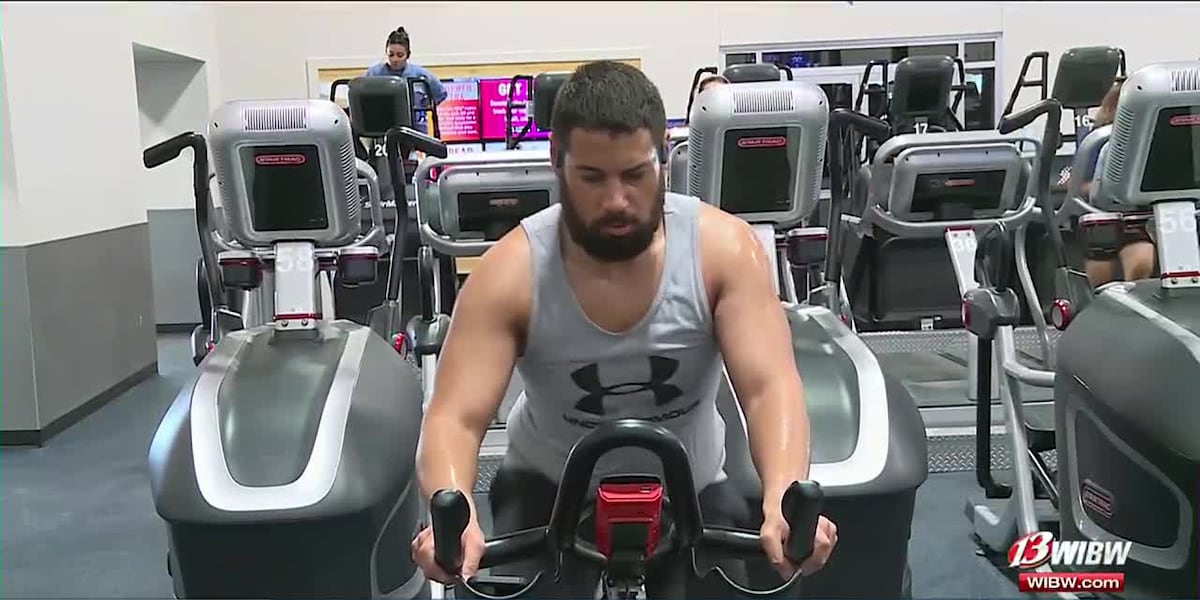Artificial intelligence has already fundamentally changed the fitness and wellness industry. ATN breaks down how
Artificial Intelligence. Two words. AI. A concise two-letter acronym. Neither were part of the fitness industry’s conversation just a few short years ago, but what was once seen as a long-term prospect is now rapidly disrupting nearly every industry and unleashing potentially monumental impacts.
Many anticipate AI’s impact on the fitness industry to be profound, possibly triggering a paradigm shift, and changing the way we deliver and receive health and wellness information and content. It has the capacity to revolutionize everything from user experience and gym management to coaching acumen to nutrition counseling to how well we understand our bodies. The list goes on.
But, how many fitness brands are genuinely embracing AI with meaningful initiatives and purpose today? To what extent are they integrating it, and do these users see it reshaping the fitness industry in the future?
Athletech News delves into this discussion, gathering insights and perspectives from numerous brands across different sectors of the industry.
AI Trailblazers
Hyperhuman has been leveraging AI since 2020 to power video production for health and fitness companies in two ways.
“Our AI automatically processes and extracts exercises from existing footage, saving companies countless editing hours, and allowing them to build vast, reusable exercise libraries in record time,” said Hyperhuman co-founder and CEO Bogdan Predusca.
“Secondly, we utilize AI to assist content production and even generate the foundation for video workouts and entire programs, which empowers companies to create a more diverse and personalized content offering,” he said.
Predusca says ultimately, they are streamlining production so companies can focus on their core competencies, creating diverse content that caters to a wider audience and personalizing the experiences, leading to better engagement and results.
Lumin Fitness, which dubs itself “The World’s Smartest Fitness Studio,” uses AI to power the entire fitness experience for members.
When you walk into a Lumin Fitness studio, you are literally interacting with the space. Through sensor technology to track physical movement paired with their app, the studio automatically checks members in, directs them to their dedicated station, and guides and motivates them safely and effectively through their workout.
Founder Brandon Bean says their hyper-personalized approach serves the digital natives who were born with a cell phone in their hand.
Their proprietary operating system, the Lumin OS, integrates the latest in artificial intelligence, spatial augmented reality, gamification, motion tracking and personalized audio.
“The system offers the most intelligent, interactive, and individualized fitness experiences in the world,” explained Bean.
EGYM is on a mission to make the entire gym “smart” by leveraging tools like AI, gamification and other tech features.

Early in 2024, EGYM unveiled a new innovation that collects member workout data, learns from that data, and then applies it to the entire fitness floor and beyond. The feature promises to elevate and personalize a user’s individual workout experience as the AI learns from their exercise habits and creates a unique training plan accordingly.
“We want to make the whole gym ‘smart’,” said EGYM North America general Manager Dana Milkie. ”By understanding members’ preferences, their goals, and experience levels and combining it with the data we are able to track on our platform, we can deliver a workout tailored to the member and the operator’s facility.”
Right on the heels of this, the fit tech company debuted EGYM Genius, an AI-powered software that develops accurate, adaptable and personalized training plans leveraging user goals and billions of data points. With its ability to link strength equipment, free weights, cardio and more by different suppliers, the software connects entire gym floors.
“We’re working on a base of over 7 billion data points we’ve collected over a decade,” said John Ford, EGYM chief product officer. “Dynamic plans are only possible with a product like Genius, which takes into account everything we’ve tracked up until the moment that you press start.”

The studio management software platform Walla uses AI to enhance time efficiency for clients and boost customer retention.
“AI helps our customers to quickly build communications with AI-generated text and images and to also get answers faster than ever,” said Walla co-founder and CEO Doug Hecht. “We’re experimenting currently with how AI can increase retention by identifying risk factors that could indicate someone is likely to quit. And for franchises, through AI we can automatically surface key metrics to support their growth with new site location selection based on demographic insights, behavior analysis, and LTV (lifetime value) prediction.”
Body scanning tech leader, Evolt is using AI-driven analytics to provide deeper insights into individual health markers, enabling tailored fitness and nutrition plans. Evolt will continue to expand its use of AI by incorporating more advanced predictive analytics and machine learning algorithms.
“As we move forward, Evolt plans to expand its use of AI by incorporating more advanced predictive analytics and machine learning algorithms,” said Evolt’s head of research and development Kylie Zimmerle, “We aim to create a more interconnected ecosystem that seamlessly integrates data from various sources, providing holistic health, fitness, and wellness solutions, all while maintaining the accuracy and science-based outcomes our customers expect from Evolt.”

Apps Get In on AI Action
Macro counting app, Macrostax makes their meal planning smarter with the use of AI.
“The app can suggest foods similar to those a person has already eaten or what is available in their kitchen,” said Lindsey Love Jenks, Macrostax founder. “This keeps the options dynamic while customizing them to a person’s likes and dislikes. This was not possible before AI.”
Life Time broke new ground in June, partnering with Microsoft to launch L.AI.C (pronounced lay-see), an AI-driven companion for its members that is housed within the Life Time member app. The luxury athletic country club operator has tapped Microsoft’s AzureOpenAI Service for the new feature, which is rolling out to beta users.
The first version offers quick answers to basic questions such as club descriptions, hours and offerings of its 170+ clubs while future editions of L.AI.C will provide personalized class suggestions, assisted class and court reservations, tailored workout programs, answers to wellness-related inquiries, and connect members to online and in-club resources.
“AI advancements are unstoppable, and we’re embracing this opportunity to provide our members with experiences that will only get better and better – just as we have committed from the start,” Life Time founder and CEO Bahram Akradi told Athletech News.

Future is a personal coaching fitness app that’s harnessing AI to enable its world-class coaches to be more effective, efficient, and precise with their work.
This company has invented a constellation of AI agents that help coaches generate and adapt training plans, craft thoughtful and effective human interactions, and remember key details about every client’s preferences, goals, plans, and life circumstances.
“Our company is built on one single insight: people move people,” said Future co-founder and CEO Rishi Mandal. “We believe it takes a coach, a trainer, or a community to achieve this and we are layering in tech to drive consistency in workouts and recommend best approaches. This frees up time to spend more time on relationship-building, which is so critical for guiding members to their best outcomes.”
The Impact of AI on Fitness: Who Stands To Gain?
When asked who will be impacted most by AI all entities emphatically agree that the human interaction element is still critical, and that both consumers and companies will be impacted.
According to Predusca, companies will benefit from AI by streamlining costs, enhancing content quality, focusing on unique selling propositions, and expanding their reach to new audiences.
“This results in a true omni-channel presence that enhances operational efficiency,” he said. “For consumers, AI promises a more personalized fitness journey. It will deliver content tailored to individual goals, preferences, and health data, making workouts more engaging, enjoyable, and effective.”
Bean highlights that in boutique fitness, where human interaction is crucial, AI complements rather than replaces this element.
“The technology behind the Lumin OS supports operators and coaches by allowing them to concentrate on building community and providing an even more personalized experience for members.”
This article originally ran in ATN’s Technology & Innovation Outlook 2024 report. Read more about the transformative impact of cutting-edge technology on the fitness and wellness industry and download the free report today.














